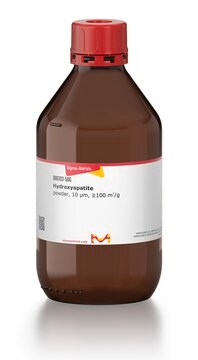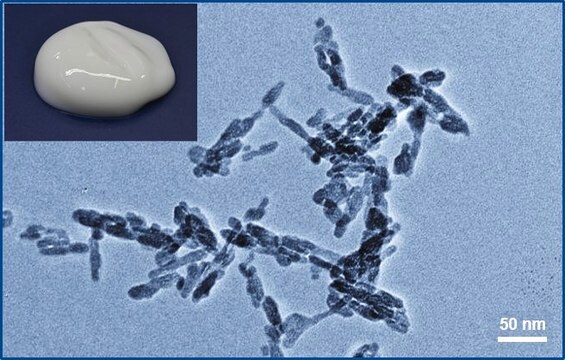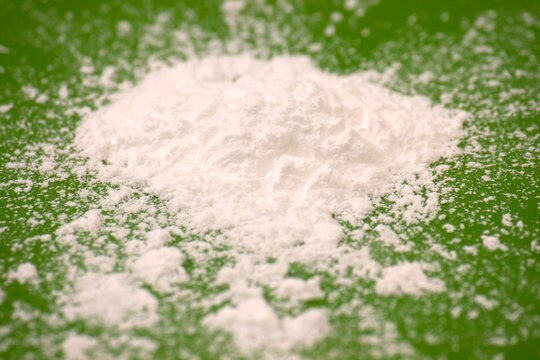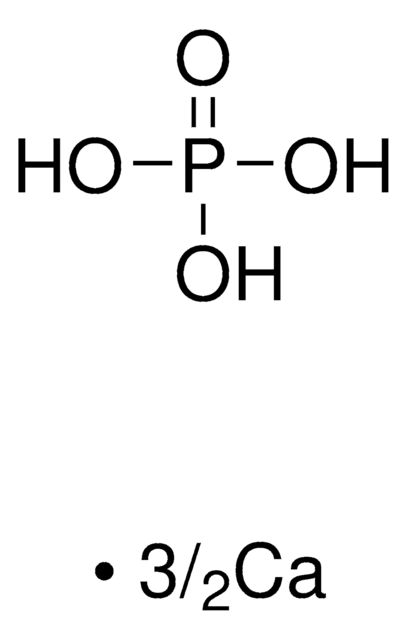H0252
Hydroxyapatite
Type I, buffered aqueous suspension
Sinónimos:
Calcium phosphate hydroxide, Durapatite, Hydroxylapatite
About This Item
Productos recomendados
grado
for analytical purposes
Nivel de calidad
tpo
Type I
Formulario
buffered aqueous suspension
temp. de almacenamiento
2-8°C
cadena SMILES
[Ca++].[Ca++].[Ca++].[Ca++].O[Ca+].[O-]P([O-])([O-])=O.[O-]P([O-])([O-])=O.[O-]P([O-])([O-])=O
InChI
1S/5Ca.3H3O4P.H2O/c;;;;;3*1-5(2,3)4;/h;;;;;3*(H3,1,2,3,4);1H2/q5*+2;;;;/p-10
Clave InChI
XYJRXVWERLGGKC-UHFFFAOYSA-D
¿Está buscando productos similares? Visita Guía de comparación de productos
Aplicación
Envase
Forma física
Código de clase de almacenamiento
13 - Non Combustible Solids
Clase de riesgo para el agua (WGK)
WGK 3
Punto de inflamabilidad (°F)
Not applicable
Punto de inflamabilidad (°C)
Not applicable
Equipo de protección personal
Eyeshields, Gloves
Elija entre una de las versiones más recientes:
¿Ya tiene este producto?
Encuentre la documentación para los productos que ha comprado recientemente en la Biblioteca de documentos.
Los clientes también vieron
Nuestro equipo de científicos tiene experiencia en todas las áreas de investigación: Ciencias de la vida, Ciencia de los materiales, Síntesis química, Cromatografía, Analítica y muchas otras.
Póngase en contacto con el Servicio técnico




